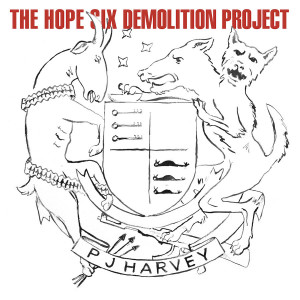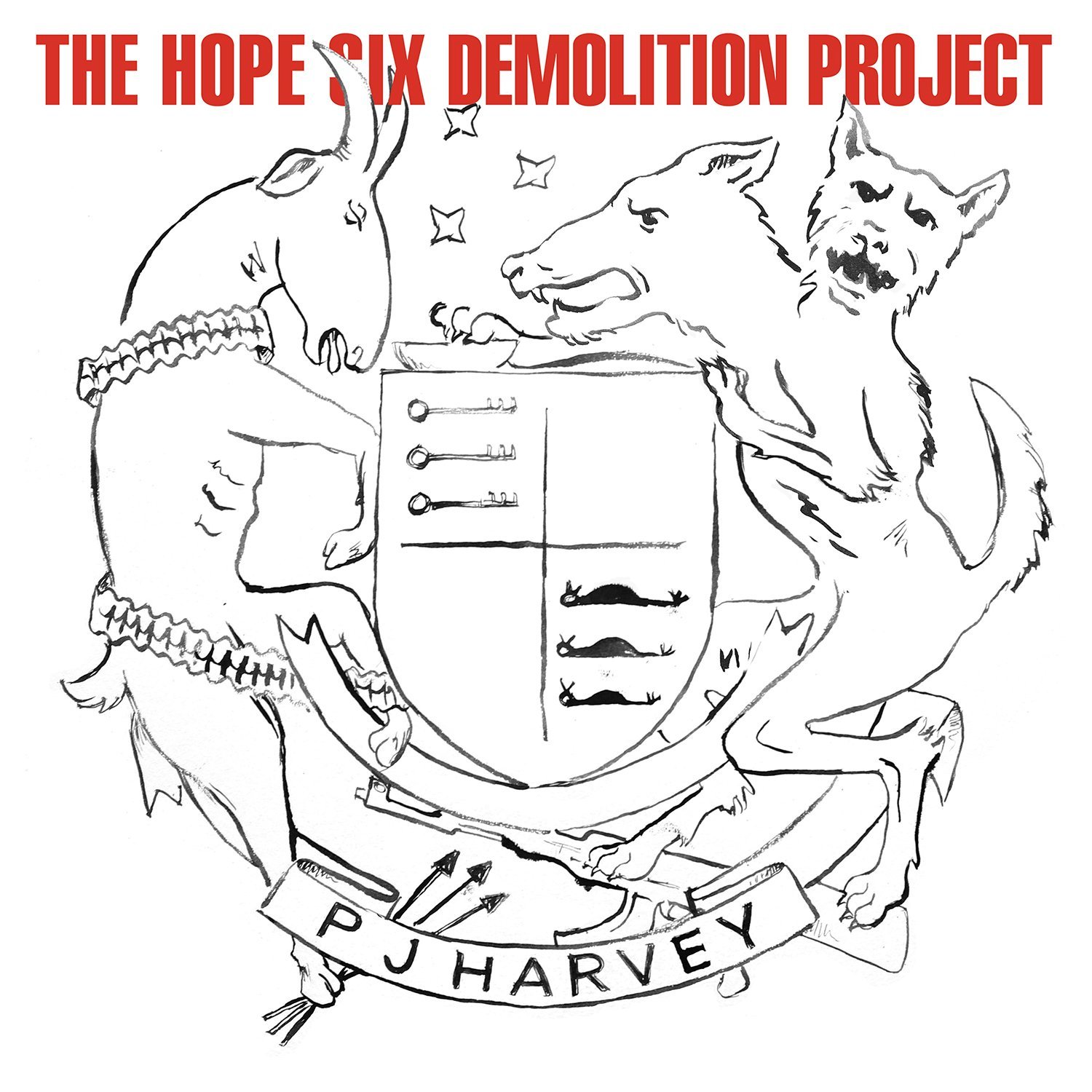PJ Harvey
The Hope Six Demolition Project
VAGRANT
5/10
All good things come to an end.
Up until now, PJ Harvey had one of the longest-running streaks of critically acclaimed albums in music, starting with her 1992 debut, the feminist masterpiece Dry, and running through 2011’s riveting Let England Shake, in which she ably criticized her native land’s involvement in foreign wars. Excluding possibly her collaborations with John Parish, every album in her storied twenty-five-year career won her heaps of praise.
Enter The Hope Six Demolition Project, the singer/songwriter’s ninth effort and first real dud. Like the satirical stereotypes in E. M. Forster’s A Passage to India almost one hundred years ago, Harvey plays the part of a condescending Englishwoman staring with horror at communities in faraway lands.
The previously untouchable artist crafted her new album based on trips she took to Washington, DC, Kosovo, and Afghanistan. Harvey also channeled her experiences into a book of poetry called The Hollow of the Hand with photos by Seamus Murphy and a few live performances of the same name featuring music, her poetry readings, short films, and a slide show. It’s a lot of work for naught.
Hope Six, for its part, begins with an embarrassing loss of authority and trust between Harvey and the audience. The sunny-sounding first song, “The Community of Hope,” is actually a degrading caricature of DC’s struggling Ward 7. Its lyrics are not only uncharacteristically lazy—“The school just looks like a shit hole / Does that look like a nice place?”—but also, as it turns out, inaccurate and already outdated.
After the release of the song as a single, DC nonprofits and city leaders noted that Harvey wrongly suggested Ward 7 has only one sit-down restaurant, when in fact it has three. More cringe-inducing is that she closes the track by repeating, “They’re gonna part a Walmart here” when those plans have since been cancelled. Topical lyrics typically become dated; it’s far more unusual for them to already be dated upon an album’s release.
Harvey spends the remainder of the album hopscotching between DC (“Medicinals,” “Near the Memorials to Vietnam and Lincoln”), Kosovo (“Chain of Keys,” “The Wheel”), and Afghanistan (“The Orange Monkey,” “The Ministry of Social Affairs,” and “Dollar, Dollar”). Everywhere she turns, it seems, is hopelessness and despair.
Harvey is aghast at what she sees, like amputees and “a million beggars” in Afghanistan and “a bouncing skull” in Kosovo. It’s an insufferable account of suffering—and because it’s told from an unreliable narrator, it’s hard to know what to feel.
Kudos to those who can listen to Hope Six and tune out the words. As with “The Community of Hope,” much of the album’s music is as pleasant and/or engaging as its lyrics are depressing and misguided. Standouts include the chilling “A Line in the Sand,” infectious “The Wheel,” skronky “The Ministry of Defence” and bluesy “Chain of Keys.”
So, Harvey does retain her status as a mesmerizing composer and the possessor of one of the most penetrating voices in music. Which is why it’s such a shame that she uses hers for such possibly well-intentioned but ultimately ignominious critiques of foreign countries. Harvey would have done everyone a service by staying home.







